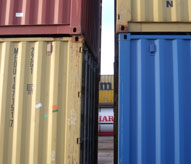Author: Yarin Eski
ISBN No: 9781138639461
Review date: 20/04/2024
No of pages: 242
Publisher: Routledge
Publisher URL:
https://www.routledge.com/Policing-Port-Security-and-Crime-Control-An-Ethnography-of-the-Port-Securityscape/Eski/p/book/9781138639461
Year of publication: 07/11/2016
Brief:
Policing Port Security and Crime Control
The everyday reality of port security is explored in a new academic work. Yarin Eski describes his Policing, Port Security and Crime Control as (to quote the subtitle) an ‘Ethnography of the Port Securityscape’; and early on in the book calls it ‘a detailed ethnography of the everyday realities and identities of street-level port security professionals, exploring the attitudes and ambitions, dreams and wishes, fears and anxieties, and cultures and practices’; and this he does. Besides quoting the port security and police (not the same groups) from conversations, he shows how Security with a capital S and policing against thieves and smugglers, and anti-capitalist or environmentalist protesters such as Greenpeace happens at two big ports – namely Rotterdam and Hamburg.
While the author, then, did his fieldwork in north west Europe (in 2011 and 2012), much of the scholarly criminological work he draws on is from the English-speaking world, and indeed he is now a Senior Lecturer in Policing Studies at Liverpool John Moores University. Much has changed since 9-11, as he sets out, such as the global ISPS code. Briefly, the International Ship and Port Facility Security Code came in through the global maritime body the IMO after the 2001 attacks. “Both port police and security staff consider the ISPS code to have adversely affected the port business community by making irrational demands and they despise the fact it was pushed forward by a fear-driven USA.” Part of the reason for applying the code, and thereby getting money to improve security, was to make a port more appealing for foreign business.
Indeed countering terrorism (even though it’s invisible and ports haven’t been terrorist targets – port police think that terrorists prefer to attack urban areas with dense populations) is not the only story here. Terrorists, in other words, think about numbers of victims and headlines, rather than the economic damage they can do to an economy, if they stop one part of an international supply chain.
However, how security officers and the port police deal with wrong-doing or breaches of the health and safety and other rules by dockers and truckers – if they’re not wearing the right PPE, or not driving where they ought to according to ISPS – is the everyday reality. Besides that ‘street-level’ stuff between workers, you have the tug between port police regarding their work as a public good, and commercial targets. That has meant privatising of some of their work to private contract security; and the need to interrupt the port’s work as little as possible. The sheer number of trucks and amount of loading can make for trouble, and a feeling of Trucker versus Security, them and us. The many languages and nationalities don’t help.
Sometimes the author would have been better served by reining back the academic quotation and letting the interviewees tell their stories, and perhaps could have done even more to get to the bottom of the profound yet little-discussed or articulated problem with doing security; the fact that very little happens, which makes port police think security officers aren’t alert, or are even idle (although Eski reports a security officer make the same complaint against the police). Yet Eski has done a service by showing the occupational daily struggles of a security workforce; and the niggling conflict between police and private security, at times and outwardly they’re doing the same anti-crime work, yet police look down on private security as a cut above the security guards (and while Eski was doing his fieldwork, the news that G4S were unable to provide enough officers to secure the London Olympics plainly made it across the North Sea).
Others have done the same studying of other workplaces and occupational cultures. Eski makes a case for the port as ‘a unique, and physically and socio-culturally closed-off domain’. The smallest security or other breach can delay international trade. The stakes are high, but the people at street-level – the passing-through truck drivers, the dock workforce with their own occupational culture, besides the security officers – have been anonymous. Eski shows how the police and security officers – as at sites besides ports – feel the pressure, of serving more than one master and purpose (the port authorities; the companies sending their goods through the port; their contract security employer). Eski suggests that the security officers are more loyal to their port than to the security company, ‘to the extent that they prevent their customer from spending too much money on their security company despite the fact that they consider port company owners arrogant’.









